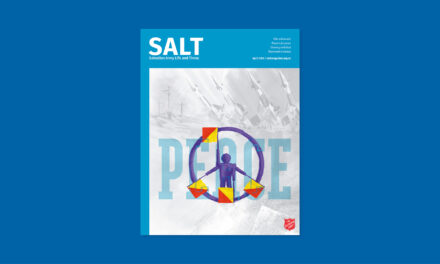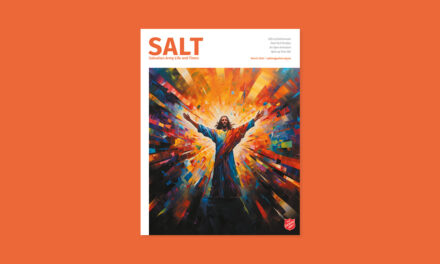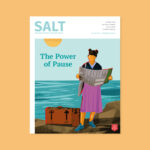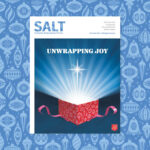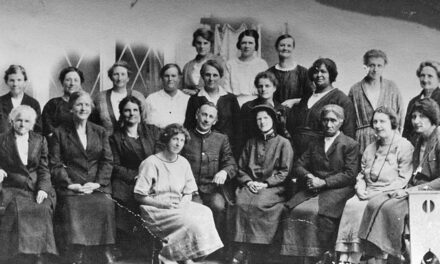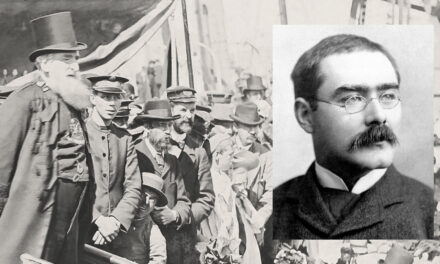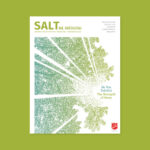
The Kingdom of Clarity

Major Mat Badger introduces us to the pitfalls and insights of the Parable of the Sower in this four-part series. Part One looks at the seed that falls on the pathway (Matthew 13:3–4, 18–19). (Read Part Two)
A sense of dread set in. There had just been a nuclear meltdown and as our family watched the images on the news, we did so in silence. And we prayed.
During the time of the 1986 Chernobyl disaster, a real sense of uncertainty entered our high school. Common conversations among my friends became topics such as the end of the world, the real meaning of life, and if God was real. As I think back, I am astounded that a nuclear disaster on the other side of the world could have such a huge impact on my non-Christian peer group—they were scrambling to find some hope in the uncertainty. So each morning during this time, I began to pray for my friends. I asked God to move in their lives—that they would discover the hope that is found when someone understands and is transformed by the full message of the gospel.
The invitation
About a year later, I heard the most amazing testimony on the radio—an evangelist known for his work among the poor in South America. His message was gritty and real and focused on the question: ‘Why do bad things happen in the world?’ He was being interviewed prior to a speaking tour throughout New Zealand. I thought it would be a great opportunity to hear him and also invite some of my friends. If he shared with a live audience what he shared on the radio, not only would it be an interesting night but my friends would hear a powerful gospel presentation. Quite a few of my non-Christian friends came along.
An unusual turn of events
After a couple of hymns the evangelist took centre stage in front of about 400 people. And then he began to share an obscure version of his radio testimony, including his opinion about the gospel—which to me, didn’t make sense. For a Christ-follower, the word ‘gospel’ literally means ‘the good news’, and this guy was not sharing the good news. What he was sharing was incoherent and made all of us feel uneasy. After about 40 minutes, he then took his message in another unexpected direction.
‘Friends, in 2 Samuel chapter 6 we see that during a tough time for King David his response was to dance before God in worship. I’m sure you will agree with me that these are tough days.’
My inner alarm went off. He continued, ‘This evening, I feel convicted that we should do the same as David…’ By this time my internal warning siren was screaming!
‘And so tonight we are going to dance before the Lord!’
Just like that, the evening got really weird, really fast. My friends were all looking at me with concerned expressions. One of them voiced what the whole group was obviously thinking:
‘Badger—what the hell is this?!’
They weren’t the only ones surprised. I was blindsided by what was happening and felt betrayed.
We all left and stood outside in the car park. Even though I apologised profusely, one of them made a statement that still makes me cringe: ‘Christians are just weird’. I looked back through the windows. Some people were clearly upset and like us were leaving. But for others, there was laughing, crying, and all sorts of ecstatic activity. Additionally, people were responding to an invitation based on a ‘gospel’ I wasn’t familiar with. I was confused. My friend was right—Christians can be weird.
In search of authentic faith
This was the first time I realised that the journey to an authentic faith could be a minefield. I don’t think it’s a coincidence that in the first part of the Parable of the Sower, Jesus addresses the issue of confusion.
‘A farmer went out to sow his seed. As he was scattering the seed, some fell along the path, and the birds came and ate it up.’
Later, he shared with his followers in private the meaning of his words. ‘Listen then to what the parable of the sower means: When anyone hears the message about the kingdom and does not understand it, the evil one comes and snatches away what was sown in their heart. This is the seed sown along the path.’
Matthew Henry, the famed Bible commentator, makes the point that the farmer represents Christ and that the seed is the message of the gospel going out into the world, and in this case, landing on the pathway. He also makes the point that the work of Christ is shared by his people who are co-labourers in the task of taking the gospel to the nations.
In addition, I think two key issues are at stake. First, the text makes it clear that the seed is good. The seed is not faulty in any way, it has simply landed in the wrong place. If we could label the seed the full message of the gospel, a product we could purchase online, it would have a perfect rating. The problem is not with the merchandise, the fault lies with some of the salespeople who are either well-meaning but not qualified for the task or who are deliberately manipulative. I wonder if this is what the birds represent. It seems when birds (in the plural) appear in the Bible they tend to represent bad news, in this case, confusion. Here they represent the evil one who comes and snatches away what was sown in a person’s heart. Maybe the birds also represent people who claim to be ministers of the gospel but who are in fact wolves in sheep’s clothing.
The unseen realm
The second issue is more of a reminder: we are involved in a spiritual battle. While the clarity in which the full gospel is communicated is important, even when communicated well there are still going to be those who are bewildered by it and others who simply can’t accept it. Henry wonders whether the path might represent the state of some people’s hearts and minds, hard and therefore unable to be penetrated with the life-giving truth of the gospel.
Later, in the fourth part of this parable, Jesus made it clear that the message of the kingdom is something that can be understood by the hearer with absolute clarity (13:23). Confusion is a tactic employed by our adversary. In Ephesians 6 the believer is instructed to put on the full armour of God. Central to this defensive shell is the belt of truth, with the key weapon being the sword of the Spirit which is the Word of God. Spiritual warfare happens in what physicist Stephen Hawking described as the ‘unseen dimensions’. It happens in partnership with the Holy Spirit. A clear understanding of the truth of the full gospel and praying for others are core components.
When it came to my friends, in the years that followed several of them did accept Christ. However, one of my friends to this day has never recovered from the confusion of that night.

